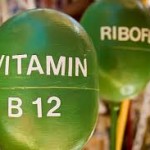 Good day to you all,
Good day to you all,
I trust that you are enjoying the day.
Whether you are in school or not September marks a time of new beginnings for many of us who follow the herd of stampeding children into their classrooms with the return of the new academic year. There is an air about this time that I find resonates in the pulse of people and the atmosphere; a sense of a change of pace and tempo to our lives.
We may find that getting up to speed on our daily affairs takes some getting used to as we have been used to enjoying the relaxing days summer. Our bodies may be a bit out of touch with the hustle and bustle pace. To support our bodies to function optimally to this level it is helpful to consider our dietary needs. To consider our meal planning and look at what sources of foods we are deriving our nutritional needs and if supplementation could be helpful.
So I am dedicating the month of September to Vitamin and Mineral Reviews and Supplementation.
One important food source for energy is vitamin B12.
B12 is sourced abundantly and exclusively from animal foods such as meat, milk, eggs and cheese.
In an article published in the New York Times Science Section, Tuesday, September 6, 2016 titled A Vitamin to Protect the Aging Brain, Jane Brody describes how she takes supplement of vitamin D and now is considering B12 as recommended by the National Academy of Medicine even though she does consumes these foods. In her estimate it is more a question of how well she might be absorbing B12 due to the aging factor. She also lists auto immune diseases as possible candidates of deficiency in B12.
In the article Ms. Brody describes how in order for B12 to be assimilated into the body it needs the proper environment to cultivate its release. It requires the stomach acid known as the enzyme pepsin and gastric protein intrinsic factor to take the food ingested and extrapolate the vitamin and be absorbed by the small intestines. These stomach acids are produced less and less as we age.
The level of these stomach acids may be disrupted by digestive issues such as Crohns disease, ulcerative colitis and other inflammatory bowel related issues. Deficiency of B12 should be considered particularly if any alterations of the digestive system through surgery has been performed on the stomach or intestines or by those who use proton-pump inhibitors to control acid reflux for example.
Signs of B12 deficiency as described by Ms. Brody are: fatigue, tingling, numbness of the hands and feet, muscle weakness and loss of reflexes. She describes how challenging it can be to link these symptoms to a lack of B12 and describes how prolonged deficiency can lead to depression, dementia and memory loss.
Absorption of vitamins is something that I have learned more and more about through the years after many mishaps of taking vitamins in ways that left me feeling no better for having taken them and cost me a lot of money wasted on very expensive urine. Now I take what I need and do so in the best manner for absorption. B12 is a vitamin I learned about earlier in my dietary vegan, vegetarian days and began supplementing. Fortunately now in addition to B12 supplements there are various plant-based foods that are fortified with synthetic B12.
So as you go about this first week of September and acclimate yourself to the new pace of things, take time to review your diet and supplements. Consider what you might need going forward and if B12 is necessary for you. Talk to your nutritionist and general health physician about supplementation and the recommended level of dose.
Next blog, I will look at the mineral iron, its sources and my tips for best absorption.
In health,
Safara
.


